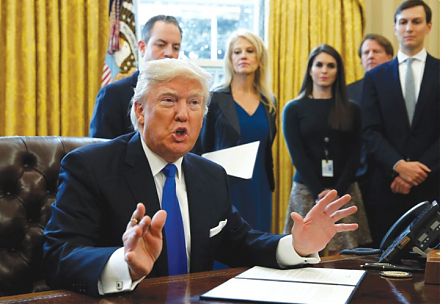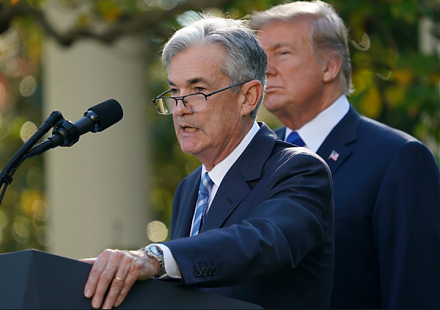

2018-07-27 10:35:00 Fri ET
technology antitrust competition bilateral trade free trade fair trade trade agreement trade surplus trade deficit multilateralism neoliberalism world trade organization regulation public utility current account compliance
Admitting China to the World Trade Organization (WTO) and other international activities seems ineffective in imparting economic freedom and democracy to the communist regime. China now marches toward global technological leadership and often challenges America both economically and militarily in what U.S. policy writer Michael Lind terms *Cold War II*. At one level, China seeks to be master its own technologies such as artificial-intelligence applications, robots, electric cars, biotech innovations, and semiconductor microchips. China thus aspires to achieve not only economic growth but also technological dominance.
With good intentions, the prior Carter and Clinton administrations might have been conducive to normalizing trade relations with China. These administrations might hold high hopes that China may embrace both economic freedom and democracy after WTO accession. These high hopes would then continue throughout the Bush and Obama administrations.
Nevertheless, China fails to fully comply with its WTO membership requirements with respect to trademark-and-patent protection and enforcement. In fact, China skillfully uses its WTO membership as blanket immunity from prosecution for its R&D-mercantilist policies. For instance, China sets unfair rules and regulations for U.S. multinational corporations to establish onshore data centers and IT innovation parks. These policies in turn transfer technologies from these corporations to their Chinese counterparts.
In the new millennium, America can no longer undertake unilateral actions against China without triggering WTO complaints. For better national economic security, it is legitimate for the Trump administration to impose on China hefty punitive tariffs and even quotas and embargoes in addition to foreign investment restrictions. This counterrevolutionary strategy better balances U.S. economic interests and so rolls back China's R&D-mercantilist agenda *Made in China 2025*.
If any of our AYA Analytica financial health memos (FHM), blog posts, ebooks, newsletters, and notifications etc, or any other form of online content curation, involves potential copyright concerns, please feel free to contact us at service@ayafintech.network so that we can remove relevant content in response to any such request within a reasonable time frame.
2021-08-01 07:26:00 Sunday ET

The Biden administration launches economic reforms in fiscal and monetary stimulus, global trade, finance, and technology. President Joe Biden proposes s
2018-07-05 13:40:00 Thursday ET

U.S. trading partners such as the European Union, Canada, China, Japan, Mexico, and Russia voice their concern at the World Trade Organization (WTO) in ligh
2018-03-01 07:35:00 Thursday ET

Trump imposes high tariffs on steel (25%) and aluminum (10%) in a new trade war with subsequent exemptions for Canada and Mexico. The Trump administration&#
2022-10-25 11:31:00 Tuesday ET

Corporate investment insights from mergers and acquisitions Relative market misvaluation between the bidder and target firms drives most waves of mergers
2018-02-07 06:38:00 Wednesday ET

The new Fed chairman Jerome Powell faces a new challenge in the form of both core CPI and CPI inflation rate hikes toward 1.8%-2.1% year-over-year with stro
2018-10-27 09:34:00 Saturday ET

U.S. automobile and real estate sales decline despite higher consumer confidence and low unemployment as of October 2018. This slowdown arises from the curr